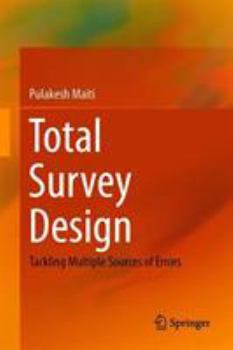Total Survey Design: Tackling Multiple Sources of Errors
This book discusses the various aspects of total survey design and shows how survey statisticians can refine adjustment procedures throughout the survey to make the inference population and inference parameters closer to the target population and target parameters, despite unavoidable deficiencies at the frame formation and selection stages. Further, it addresses sample selection and implementation, schedule/questionnaire design preparation, and data collection.
The book delineates multiple sources of errors, including errors due to non-observation, i.e. failure to secure data from some of the selected respondents, and those due to measurement errors during data collection and data processing. It also shows why, given sufficient evidence of different sources of error and their interrelationships, it is important to develop a Total Error Model for survey estimates, since attempts to reduce or control errors of one type may have adverse effects on other components of total error. Moreover, it examines the nature of the total error-type models, namely those that accommodate several sources of error in order to estimate more complex parameters than the total or mean alone. Lastly, it reveals why the development of appropriate cost models is essential in the context of total survey design. As such, the book offers an insightful and valuable resource for researchers and professionals/practitioners alike.
Related Subjects
Business Business & Investing Economics Math Mathematics Science & Math Social Science Social Sciences




